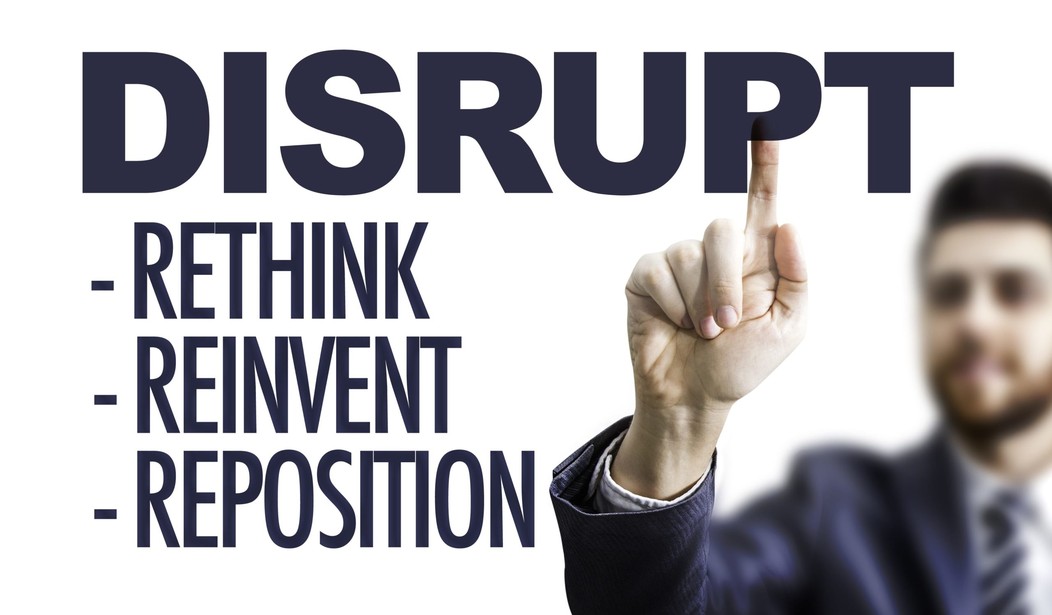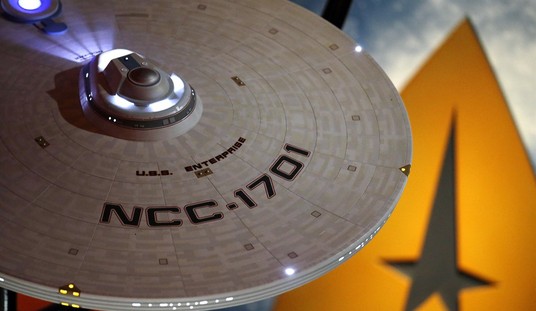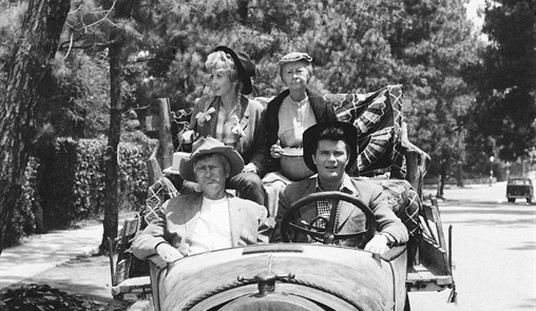A number of recent articles have argued that America — and the post WW2 order — is broken. Ian Bremmer, the president of Eurasia Group, a political-risk consultancy wrote that the “Pax Americana, the stabilizing role played by the U.S. superpower, is no more. The G-Zero era—where no one country (or constellation of countries) is willing or able to assume the responsibility of global leadership—is now officially upon us. And it’s already wreaking havoc.” The phrase “G-Zero” is a play off the slogan of the G-20, which assumed the world could be led by a small elite of countries. In a G-Zero world no one is in charge of “the world”.
At the heart of the vacuum is a growing political division in the West, the putative wrecker ball of the G’s collapse. Evidence of the division abounds. “It feels like America is descending into chaos,” writes John Podhoretz. “Wednesday’s ghastly shooting spree at the congressional Republican baseball practice” felt like the start of something. The assassin had a list of six other Republican congressman in his possession.
That “something” sounds exactly like a menace from a horror movie script. “Following the attack on congressional Republicans by a left-wing political activist on Wednesday, VICE News sat down with a few domestic extremism experts to talk about the surge in political violence in the U.S., particularly from the left. In his discussion with the news outlet, Brian Levin, director of the Center for the Study of Hate and Extremism at California State University, issued a chilling warning about “something” he feared was “coalescing on the hard left.”
But David French, writing in the National Review, is less apocalyptic. “We’re not in a Civil War,” he writes “but we are drifting toward divorce.” He may well be right but no one quite knows divorce would mean and still less whether it will be a good or bad thing. As in the case in divorces of the marital kind, political separation can lead to disaster or to freedom depending on the outcome. What is less in doubt is that it will produce a degree of voluntary re-segregation that French thinks is already taking place on micro and macro levels.
Last week there were two telling incidents — one small, the other more consequential — that spoke volumes about the state of our national life. Let’s start small. Over in Seattle, in the midst of a debate over juvenile justice, a city-council member invoked his “Republican friends” as a symbol of the broad-based agreement that incarceration policies need to change. One of his colleagues, Kshama Sawant, snapped back with the proud declaration that she didn’t have any Republican friends. The crowd cheered.
Sure, it’s but one small incident, but consider something bigger. The state of California is in the process of taking a series of political steps that are not only cementing its status as a progressive enclave, it’s stumbling toward its own foreign policy. After Donald Trump withdrew America from the Paris climate agreement, California governor Jerry Brown rushed to fill the void. California is touting its collaborations with China to combat global warming.
Perhaps an even more dramatic example are the demands by left-wing protests at Evergreen College for what amounts to racial separatism.
If people go their separate ways such a divorce would be an astonishing defeat for the Left. For the first time since 1917 it would be giving up its claim to guide the entire in order to settle for parts. As late as 2016 it was possible to imagine an America led to a “progressive” future by Hillary Clinton; an EU guiding all of Europe to a similar destiny and the G20 taking the whole world to the same destination. Indeed everyone told they were fated to follow an Arc of History. Yet after Brexit, Trump and G-Zero it is no longer possible to visualize this outcome. A blue-red division would confirm the failure to create a “progressive” world. No conceivable rollback will ever put Humpty Dumpty together again.
While this would be bad for the political ambitions of the Left, the people on the Left may actually benefit. The alternative to the gloom doom scenario is to recognize that we may in fact be on a pathway to a new American century, a new epoch of world prosperity. Except that it will be a different America and a different globe.
It is by no means clear there will be any real losers in a rediversification of the world. The world after all was once a much more varied place. It is still divided as it is into countries, competing corporations, ideologies and religions. We routinely knit disparate countries, computer systems and even physical modalities together and make good money from it. The end of the old system may in fact unlock opportunities — and wealth — to be found in creating the adjustments, interfaces, routings, services required by a world suddenly supercharged by new degrees of freedom. Economic activity continues even in times of transition. Only the form of activity changes.
A decoupling will allow the emergence of solutions that would otherwise be suppressed by mandated programs like Obamacare or Trumpcare in healthcare for instance. Competition is generally a positive thing and we are likely to have more quality and lower prices not just in the realm of physical products but in a social systems and governance. Ironically the world may end up with a genuine multicultural society instead of a monocultural leftist diktat masquerading as one. Political tensions between left and right may even decline as the points of friction are reduced.
But not every separation necessarily ends happily. The biggest threat to a successful divorce is the need by one partner for Other People’s Money to maintain its lifestyle. There is always the possibility of domestic violence instead of new opportunities. The best guarantee ofa successful transition is innovation. Entire sectors like the media, higher education and public sector unions are already facing wrenching changes, not for any defect in personnel, but because they are predicated on models whose time has passed. Possibly the most revolutionary act a person can perform at this critical moment is to create opportunities out of the ongoing disruption.
We are either on the brink of an epic disaster or a once in a lifetime opportunity. Will it be back to G-20 vision or in at the ground floor of whatever comes? The only thing one can’t do is stand still. The times they are a’ changing.
Follow Wretchard on Twitter
For a list of books most frequently purchased by readers, visit my homepage.
Support the Belmont Club by purchasing from Amazon through the links below.
Books:
The Vanishing American Adult: Our Coming-of-Age Crisis – and How to Rebuild a Culture of Self-Reliance, by Ben Sasse. In this book, Sasse diagnoses the causes of a generation that can’t grow up and offers a path for raising children to become active and engaged citizens. He identifies many of the coming-of-age activities that have defined the American experience since the Founding that young people should pursue but have skipped altogether – hard work to appreciate the benefits of labor, travel to understand deprivation and want, the power of reading, leaving home to start a family, becoming economically self-reliant ― and explains how parents can encourage them. The statistics are daunting: 30% of college students drop out after the first year, and only 4 in 10 graduate. One in three 18-to-34 year-olds live with their parents. Sasse believes these phenomena are an existential threat to the American way of life.
Hue 1968: A Turning Point of the American War in Vietnam, by Mark Bowden. The first battle book from the author of Black Hawk Down, Hue 1968 is the story of the centerpiece of the Tet Offensive and a turning point in the American War in Vietnam. Using war archives in the US and Vietnam and interviews with participants from both sides, Bowden narrates each stage of this crucial battle through multiple viewpoints. The battle, which included the most intense urban combat since World War 2, played out over 24 days and ultimately cost 10,000 lives. It was the bloodiest of the entire war.
The Winter Fortress: The Epic Mission to Sabotage Hitler’s Atomic Bomb, by Neal Bascomb. Based on a trove of top secret documents and never-before-seen diaries and letters of the saboteurs, this book is a chronicle of a brilliant scientist, a band of spies on skies, perilous survival in the wild, sacrifice for one’s country, Gestapo manhunts, soul-crushing setbacks, and a last-minute operation that would end any chance Hitler could obtain the atomic bomb – and alter the course of the war.
For a list of books most frequently purchased by readers, visit my homepage.
Did you know that you can purchase some of these books and pamphlets by Richard Fernandez and share them with your friends? They will receive a link in their email and it will automatically give them access to a Kindle reader on their smartphone, computer or even as a web-readable document.
The War of the Words, Understanding the crisis of the early 21st century in terms of information corruption in the financial, security and political spheres
Rebranding Christianity, or why the truth shall make you free
The Three Conjectures, reflections on terrorism and the nuclear age
Storming the Castle, why government should get small
No Way In at Amazon Kindle. Fiction. A flight into peril, flashbacks to underground action.
Storm Over the South China Sea, how China is restarting history in the Pacific
Tip Jar or Subscribe or Unsubscribe to the Belmont Club










Join the conversation as a VIP Member